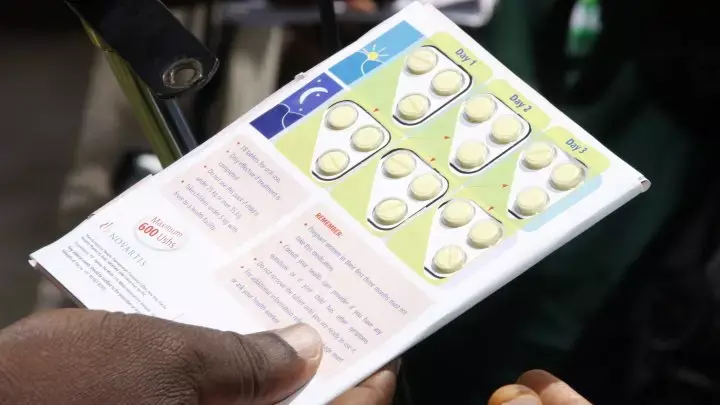- Home
- Medical news & Guidelines
- Anesthesiology
- Cardiology and CTVS
- Critical Care
- Dentistry
- Dermatology
- Diabetes and Endocrinology
- ENT
- Gastroenterology
- Medicine
- Nephrology
- Neurology
- Obstretics-Gynaecology
- Oncology
- Ophthalmology
- Orthopaedics
- Pediatrics-Neonatology
- Psychiatry
- Pulmonology
- Radiology
- Surgery
- Urology
- Laboratory Medicine
- Diet
- Nursing
- Paramedical
- Physiotherapy
- Health news
- Fact Check
- Bone Health Fact Check
- Brain Health Fact Check
- Cancer Related Fact Check
- Child Care Fact Check
- Dental and oral health fact check
- Diabetes and metabolic health fact check
- Diet and Nutrition Fact Check
- Eye and ENT Care Fact Check
- Fitness fact check
- Gut health fact check
- Heart health fact check
- Kidney health fact check
- Medical education fact check
- Men's health fact check
- Respiratory fact check
- Skin and hair care fact check
- Vaccine and Immunization fact check
- Women's health fact check
- AYUSH
- State News
- Andaman and Nicobar Islands
- Andhra Pradesh
- Arunachal Pradesh
- Assam
- Bihar
- Chandigarh
- Chattisgarh
- Dadra and Nagar Haveli
- Daman and Diu
- Delhi
- Goa
- Gujarat
- Haryana
- Himachal Pradesh
- Jammu & Kashmir
- Jharkhand
- Karnataka
- Kerala
- Ladakh
- Lakshadweep
- Madhya Pradesh
- Maharashtra
- Manipur
- Meghalaya
- Mizoram
- Nagaland
- Odisha
- Puducherry
- Punjab
- Rajasthan
- Sikkim
- Tamil Nadu
- Telangana
- Tripura
- Uttar Pradesh
- Uttrakhand
- West Bengal
- Medical Education
- Industry
Antimalarials not only effective but might be cardioprotective in SLE patients: Study

Antimalarials are not only safe but might be cardioprotective in patients with systemic lupus erythematosus (SLE), according to a recent study published in the Seminars in Arthritis and Rheumatism
Factors associated with chronic heart failure (CHF) in patients with systemic lupus erythematosus (SLE) have received little attention. Recent data on the use of hydroxychloroquine in the treatment of SARS-CoV-2 infection have cast doubt on its cardiac safety. The factors associated with CHF, including therapy with antimalarials, were analyzed in a large multicenter SLE cohort.
Cross-sectional study including all patients with SLE (ACR-1997 criteria) included in the Spanish Society of Rheumatology Lupus Register (RELESSER), based on historically gathered data. Patients with CHF prior to diagnosis of SLE were excluded. A multivariable analysis exploring factors associated with CHF was conducted.
Results:
The study population comprised 117 patients with SLE (ACR-97 criteria) and CHF and 3,506 SLE controls. Ninety percent were women. Patients with CHF were older and presented greater SLE severity, organ damage, and mortality than those without CHF. The multivariable model revealed the factors associated with CHF to be ischemic heart disease (7.96 [4.01–15.48], p < 0.0001), cardiac arrhythmia (7.38 [4.00–13.42], p < 0.0001), pulmonary hypertension (3.71 [1.84–7.25], p < 0.0002), valvulopathy (6.33 [3.41–11.62], p < 0.0001), non-cardiovascular damage (1.29 [1.16–1.44], p < 0.000) and calcium/vitamin D treatment (5.29 [2.07–16.86], p = 0.0015). Female sex (0.46 [0.25–0.88], p = 0.0147) and antimalarials (0.28 [0.17–0.45], p < 0.000) proved to be protective factors.
Thus, the researchers concluded that Patients with SLE and CHF experience more severe SLE. Treatment with antimalarials appears to confer a cardioprotective effect.
Reference:
Antimalarials exert a cardioprotective effect in lupus patients: Insights from the Spanish Society of Rheumatology Lupus Register (RELESSER) analysis of factors associated with heart failure by Rúa-Figueroa et al. published in the Seminars in Arthritis and Rheumatism.
https://www.sciencedirect.com/science/article/pii/S0049017221002183?via=ihub
Dr. Shravani Dali has completed her BDS from Pravara institute of medical sciences, loni. Following which she extensively worked in the healthcare sector for 2+ years. She has been actively involved in writing blogs in field of health and wellness. Currently she is pursuing her Masters of public health-health administration from Tata institute of social sciences. She can be contacted at editorial@medicaldialogues.in.
Dr Kamal Kant Kohli-MBBS, DTCD- a chest specialist with more than 30 years of practice and a flair for writing clinical articles, Dr Kamal Kant Kohli joined Medical Dialogues as a Chief Editor of Medical News. Besides writing articles, as an editor, he proofreads and verifies all the medical content published on Medical Dialogues including those coming from journals, studies,medical conferences,guidelines etc. Email: drkohli@medicaldialogues.in. Contact no. 011-43720751


